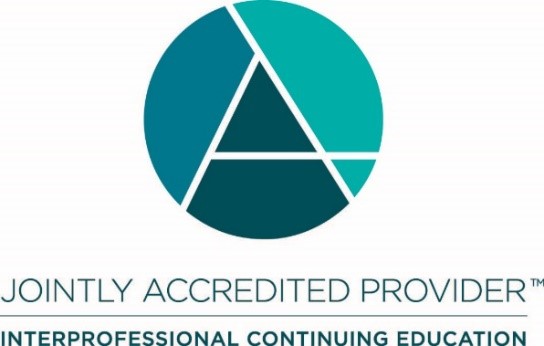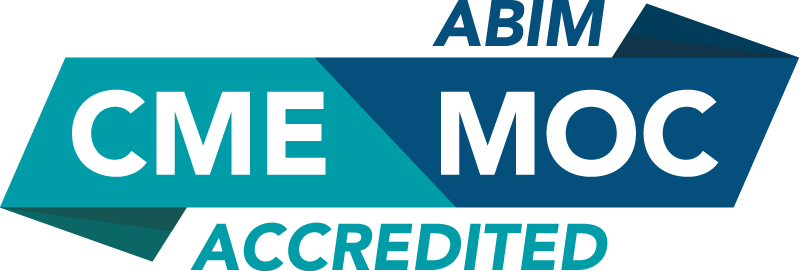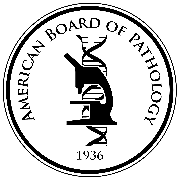NCCN 2020 Congress Series™: Breast Cancer with Updates from 2019 San Antonio Breast Cancer Symposium
Breast cancer continues to be the second most common cause of cancer death in women in the United States. Results from numerous clinical trials continue to expand diagnostic/prognostic tools, therapeutic options, and supportive care strategies. Healthcare professionals need to be educated on current and emerging scientific data to make evidence-based treatment decisions and to provide optimal care for patients with breast cancer.
The NCCN 2020 Congress Series™: Breast Cancer with Updates from the 2019 San Antonio Breast Cancer Symposium (SABCS) will provide expert insights on the current standard of care for patients with breast cancer and include the latest clinical research updates from the 2019 SABCS to assist clinicians in formulating breast cancer management strategies.
Target Audience
This educational program is designed to meet the educational needs of physicians, nurse practitioners, nurses, physician assistants, pharmacists, and other health care professionals who manage patients with breast cancer.
Learning Objectives
Following this program, participants should be able to:
Overall Congress Objectives
• Summarize the current standards of oncology care, key updates in the NCCN Clinical Practice Guidelines in Oncology (NCCN Guidelines®), and clinical research updates from the 2019 San Antonio Breast Cancer Symposium, and integrate appropriate strategies into clinical practice to optimize the management of patients with breast cancer and improve patient outcomes.
• Evaluate new, emerging and novel therapeutic agents, advances in care, and clinical trials data and apply relevant findings into the management of patients with breast cancer.
Genetic/Familial Risk Assessment for Breast Cancer: Controversies and Evolving Principles
• Describe the role of genetic counseling for individuals with a personal and/or family history of breast cancer.
• Identify both the utility and difficulties associated with multi-gene testing.
• Discuss controversies associated with direct-to-consumer genetic testing services.
Adjuvant and Neoadjuvant Therapies for Early Stage Breast Cancer, Including SABCS Updates
• Compare and contrast data on the clinical safety and efficacy of neoadjuvant regimens in early stage breast cancer.
• Recognize key patient and clinical factors that influence selection of systemic adjuvant therapy.
• Discuss clinical data of new and emerging supportive care interventions to improve quality of life of patients undergoing neoadjuvant/adjuvant chemotherapy.
Surgical Management of Breast Cancer, Including SABCS Updates
• Develop evidence-based approaches for the surgical management of the axilla in patients with early stage breast cancer.
• Identify patients who do not need to undergo axillary lymph node biopsy.
• Discuss new and emerging data related to management of the axilla.
Is There a Role for Proton Therapy in the Treatment of Breast Cancer?
• Discuss various radiation therapy modalities used in breast cancer.
• Outline potential clinical applications of proton beam radiation in breast cancer.
• Review available clinical data supporting ongoing research in the role of proton beam radiation therapy for breast cancer.
Principles of Breast Reconstruction after Surgery
• Outline the various techniques used for breast reconstruction.
• Review the timing of breast reconstruction including the advantages and disadvantages of immediate versus delayed breast reconstruction.
• Counsel patients on appropriate breast reconstructive procedure based on clinical factors and patient preference.
Biomarker Assays for Treatment Selection of Advanced Breast Cancer
• List available predictive biomarkers to guide therapeutic decisions in patients with advanced breast cancer.
• Outline the currently used molecular profiling techniques.
• Evaluate the available data to determine appropriate molecular assays for specific biomarkers.
Management of Metastatic Breast Cancer, Including SABCS Updates
• Select evidence-based first- and subsequent-line treatment options for patients with metastatic breast cancer based on hormone-and HER2-receptor status.
• List the current therapeutic approaches for triple negative metastatic breast cancer.
• Outline new and emerging therapeutic options for patients with metastatic breast cancer.
Management of Toxicities with Targeted Therapies for Breast Cancer
• Review the mechanism of action of currently available targeted therapies.
• Review safety profiles of targeted agents used in metastatic breast cancer.
• Optimally manage drug interactions and common toxicities related to targeted agents.
Management of Rare Breast Cancers
• Outline the classification of select rare breast cancers.
• Summarize the current knowledge of clinical and genomic aspects of rare breast cancer histologies.
• Discuss emerging therapeutic strategies in management of select rare breast cancers.
NCCN Medical Education Disclosure Policy
It is the policy of NCCN that every 12 months, all faculty, moderators, activity planners and all internal planning staff participating in NCCN continuing education activities are expected to disclose any financial relationships with a commercial interest as defined by the Accreditation Council for Continuing Medical Education (ACCME) Standards for Commercial Support. In addition, all faculty presentations have been reviewed for adherence to the ACCME’s Standards for Commercial Support (the provider develops activities/educational interventions independent of commercial interests [SCS 1, 2 and 6] by experts on the topics).
Per the ACCME Standards for Commercial Support, individuals who do not disclose relevant financial relationships will be disqualified from involvement in the CE activity as a content developer, planner, or presenter. A complete list of individuals’ relationships with external entities is available upon request.
Definitions
NCCN continuing education considers financial relationships to create a “conflict of interest” when an individual has both a financial relationship with a commercial interest and the opportunity to affect CE content about the products or services of a commercial interest with which he/she and/or a spouse or partner has a financial relationship.
NCCN continuing education considers “relevant financial relationships” as financial relationships in any amount occurring within the past 12 months that create a conflict of interest. NCCN does not set a minimal dollar amount for relationships to be significant. Inherent in any amount is the incentive to maintain or increase the value of the relationship.
Faculty Disclaimers
All faculty for this continuing education activity are competent in the subject matter and qualified by experience, training, and/or preparation for the tasks and methods of delivery.
Faculty presentations may include discussion of off-label use. Faculty will disclose that the use in question is not currently approved by the FDA per the product labeling.
Faculty Disclosures
The faculty listed below discloses no relevant financial relationships:
Jame Abraham, MD
David M. Euhus, MD
Sameer A. Patel, MD
The faculty listed below discloses the following relevant financial relationships:
Kimberly H. Allison, MD
Mammotome: Scientific Advisor
Benjamin O. Anderson, MD
UE LifeSciences: Scientific Advisor
Chau Dang, MD
Daiichi-Sankyo Co.: Scientific Advisor
Lilly USA: Scientific Advisor
PUMA: Scientific Advisor; Grant/Research Support
Roche Laboratories, Inc.: Scientific Advisor/Research Support
William J. Gradishar, MD
AstraZeneca Pharmaceuticals LP: Scientific Advisor
MacroGenics, Inc.: Scientific Advisor
Roche Laboratories, Inc./Genentech, Inc.: Scientific Advisor
Seattle Genetics, Inc.: Scientific Advisor
Ami N. Shah, MD
AbbVie, Inc.: Advisory Board Member
Jonathan B. Strauss, MD, MBA
American Imaging Management (AIM): Consulting Fee
Jeffrey N. Weitzel, MD
AstraZeneca Pharmaceuticals LP: Product/Speakers Bureau
NCCN Staff Disclosures
The NCCN Activity Planning staff listed below discloses no relevant financial relationships:
Melissa Esplen; Mark A. Geisler; Kristina A. Gregory, RN, MSN, OCN; Kristin Kline Hasson; Rose Joyce; Karen Kanefield; Lisa Perfidio, MS; Shannon Ryan, CMP; Kathy Ann Smith, CHCP; Sarah Weinstein
The NCCN Clinical staff listed below discloses no relevant financial relationships:
Jennifer Burns; Susan D. Darlow, PhD; Mary A. Dwyer, MS; Rashmi Kumar, PhD

In support of improving patient care, National Comprehensive Cancer Network (NCCN) is jointly accredited by the Accreditation Council for Continuing Medical Education (ACCME), the Accreditation Council for Pharmacy Education (ACPE), and the American Nurses Credentialing Center (ANCC), to provide continuing education for the healthcare team.
Physicians
NCCN designates this live activity for a maximum of 5.5 AMA PRA Category 1 Credits™. Physicians should claim only the credit commensurate with the extent of their participation in the activity.
Nurses
NCCN designates this educational activity for a maximum of 5.5 contact hours.
Pharmacists
NCCN designates this knowledge-based continuing education activity for 5.5 contact hours (0.55 CEUs) of continuing education credit. UAN: JA4008196-0000-20-001-L01-P
Physician Assistants
NCCN has been authorized by the American Academy of PAs (AAPA) to award AAPA Category 1 CME credit for activities planned in accordance with AAPA CME Criteria. This activity is designated for 5.5 AAPA Category 1 CME credits. PAs should only claim credit commensurate with the extent of their participation.
American Board of Internal Medicine Maintenance of Certification (MOC)

Successful completion of this CME activity, which includes participation in the evaluation component, enables the participant to earn up to 5.5 medical knowledge MOC points in the American Board of Internal Medicine’s (ABIM) Maintenance of Certification (MOC) program. Participants will earn MOC points equivalent to the amount of CME credits claimed for the activity. It is the CME activity provider’s responsibility to submit participant completion information to ACCME for the purpose of granting ABIM MOC credit.
Aggregated participant data will be shared with the commercial supporters of this activity.
American Board of Pathology Maintenance of Certification (MOC)

This activity has been registered to offer credit in the American Board of Pathology’s (ABPath) Maintenance of Certification program. Successful completion of this CME activity enables the participant to earn up to 5.5 Lifelong Learning (Part II) credits.
Aggregated participant data will be shared with the commercial supporters of this activity.
American Board of Medical Specialties (MOC)
Through the American Board of Medical Specialties (“ABMS”) MOC Initiative to create a wide array of Maintenance of Certification (“MOC”) Activities through the ABMS MOC Directory, the NCCN 2020 Congress Series: Breast Cancer has met the MOC requirements as a MOC Part II CME Activity (apply toward general CME requirement) by the following ABMS Member Boards:
MOC Part II CME Activity
Radiology
Available Credit
- 5.50 AAPA Category 1 CME credit
- 5.50 ABIM MOC
- 5.50 ACPE contact hours
- 5.50 AMA PRA Category 1 Credit™
- 5.50 ANCC contact hours
- 5.50 Participation
Required Hardware/software
To complete this activity, users will need:
- A device with an Internet connection
- Adobe Reader or other PDF reader software for certificate viewing/printing

 Facebook
Facebook X
X LinkedIn
LinkedIn Forward
Forward